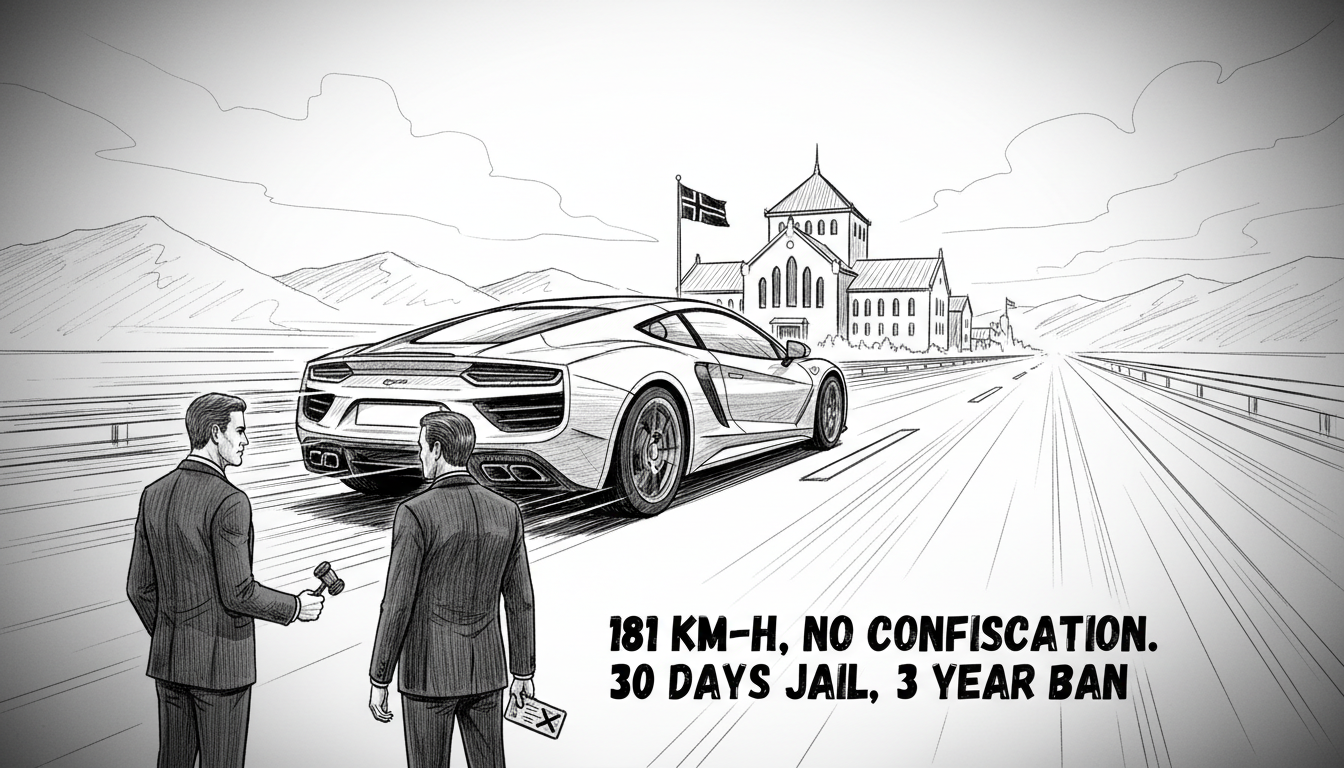A man in his thirties faced Hordaland District Court this week for extreme speeding. He admitted driving 181 km/h on Åsaneveien road during the evening of July 6. The court sentenced him to 30 days in prison for the violation.
Police sought to confiscate the man's vehicle as part of the penalty. The court rejected this request despite the serious nature of the offense. Judges determined vehicle confiscation would be disproportionate in this case.
The speeding incident occurred late at night during the common vacation period. The man drove alone on a divided highway with a median barrier. His vehicle carries substantial value between 400,000 and 500,000 Norwegian kroner. The car also involves partial loan financing.
Norwegian traffic law allows vehicle confiscation for serious violations. Courts typically reserve this penalty for extreme cases involving repeated offenses or dangerous circumstances. This case highlights how judges balance punishment severity against individual circumstances.
Why does this matter for international readers? Norway maintains strict traffic enforcement compared to many countries. The country's approach to road safety often surprises visitors accustomed to more lenient systems. This case demonstrates how Norwegian courts exercise discretion even with clear violations.
What happens next? The man loses his driving license for three years. This penalty creates practical challenges in a country where car ownership often proves necessary outside major cities. The sentence reflects Norway's commitment to road safety while acknowledging financial realities.
Norwegian speeding penalties typically increase with violation severity. Drivers exceeding limits by substantial margins face license suspension automatically. The country's zero tolerance for extreme speeding stems from comprehensive road safety strategies developed over decades.
This case occurs amid ongoing debates about traffic enforcement balance. Some argue confiscation should apply more consistently for extreme violations. Others maintain courts should consider individual financial situations. The outcome shows Norwegian courts prefer targeted penalties over blanket approaches.
International drivers should note Norway's strict enforcement standards. The country employs extensive speed camera networks and regular police patrols. Penalties often exceed those in neighboring Nordic countries for similar violations.
